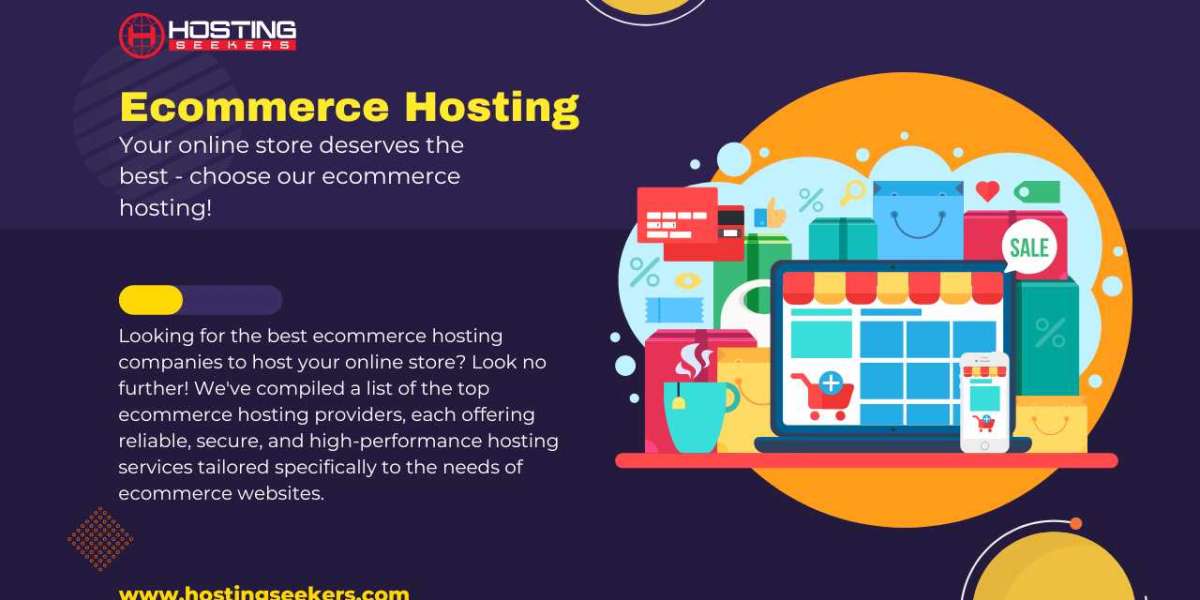Ecommerce has become one of the most popular ways for businesses to sell products and services online. With the rise of ecommerce, there has also been an increase in the number of ecommerce hosting providers that offer a range of features and services to help businesses set up and manage their online stores. In this blog post, we will explore the role of the ecommerce hosting provider in the success of your store.
What is an ecommerce hosting provider?
An ecommerce hosting provider is a company that provides the infrastructure and tools needed to create, launch, and manage an online store. These providers offer a range of services, including web hosting, domain registration, website builders, security features, payment processing, and more. Ecommerce hosting providers can be categorized into two types:
Self-hosted ecommerce platforms: These platforms require you to host your website on your own server. Examples of self-hosted platforms include Magento, WooCommerce, and OpenCart.
Hosted ecommerce platforms: These platforms host your website on their servers. Examples of hosted platforms include Shopify, BigCommerce, and Volusion.
The role of the ecommerce hosting provider in the success of your store
Website performance and uptime
The performance and uptime of your website are crucial factors that can impact the success of your online store. A slow or unreliable website can lead to a poor user experience and result in lost sales. An ecommerce hosting provider plays a significant role in ensuring that your website is fast and reliable. They do this by providing high-speed servers, CDN (Content Delivery Network) integration, and other performance optimization features.
Security and Compliance
Security is a critical concern for ecommerce websites. Your online store is likely to handle sensitive customer information, including credit card details, addresses, and phone numbers. An ecommerce hosting provider can help ensure that your website is secure and compliant with industry standards, such as PCI DSS (Payment Card Industry Data Security Standard). Ecommerce hosting companies do this by providing SSL certificates, two-factor authentication, DDoS protection, and other security features.
Payment processing
An ecommerce hosting provider also plays a crucial role in payment processing. They provide payment gateways that enable customers to pay for their purchases securely. Payment gateways can be integrated with your website, allowing customers to make payments without leaving your site. Ecommerce hosting providers also ensure that your website is compliant with payment industry standards and regulations.
Scalability and flexibility
As your online store grows, you may need to scale up your website to handle increased traffic and transactions. An ecommerce hosting provider can help you achieve this by providing scalable hosting plans and resources, such as CPU, RAM, and storage. They can also provide flexibility in terms of the features and tools available on their platform, allowing you to customize your online store as per your requirements.
Support and resources
An ecommerce hosting provider can also provide support and resources to help you manage your online store. They can offer documentation, tutorials, and forums to help you learn how to use their platform. They can also provide technical support to help you troubleshoot any issues that you may encounter while setting up or running your online store.
Tips to Select the right Ecommerce Hosting Provider for your Business
Understand Your Business Needs
Before you start looking for an ecommerce web hosting, it is important to understand your business needs. Ask yourself the following questions:
What type of products will you be selling?
How many products do you plan to sell?
How much traffic do you expect to receive?
What is your budget?
What features and functionalities do you need for your ecommerce website?
Understanding your business needs will help you narrow down your search for the right ecommerce hosting provider.
Look for Reliable Uptime
Uptime is one of the most important factors to consider when choosing an ecommerce hosting provider. Uptime refers to the amount of time that your website is up and running. If your website is down, you will lose potential sales and customers. Look for an ecommerce hosting provider that guarantees at least 99% uptime. You can check uptime reports and reviews online to see how reliable the hosting provider is.
Consider Website Speed
Website speed is another crucial factor to consider when choosing an ecommerce hosting provider. Customers expect fast-loading websites, and a slow website can lead to a poor user experience and lost sales. Look for an ecommerce hosting provider that offers fast load times, as well as features such as caching and content delivery networks (CDNs) that can help speed up your website.
Evaluate Security Measures
Security is paramount for ecommerce websites, as they deal with sensitive customer information such as credit card details. Look for an ecommerce hosting provider that offers robust security measures such as SSL certificates, firewalls, and malware scanning. Also, check if the hosting provider offers regular backups and disaster recovery options in case of a security breach or data loss.
Check for Scalability
As your ecommerce business grows, your website's traffic and resource requirements will increase. Look for an ecommerce hosting provider that offers scalable hosting plans that can accommodate your growing business needs. Make sure that the hosting provider can easily upgrade your plan or provide additional resources such as CPU, RAM, and storage when needed.
Review Technical Support
Technical support is crucial when running an ecommerce website. Look for an ecommerce hosting provider that offers 24/7 technical support through multiple channels such as live chat, phone, and email. Also, check if the hosting provider has a knowledge base or community forums where you can find answers to common issues.
Compare Pricing Plans
Pricing is an important factor to consider when choosing an ecommerce hosting provider, but it should not be the only factor. Look for a hosting provider that offers transparent pricing plans with no hidden fees. Compare the features and functionalities offered by different hosting providers and choose the one that best fits your business needs and budget.
Consider Add-Ons and Integrations
Some ecommerce hosting providers offer add-ons and integrations that can enhance your website's functionality and user experience. For example, some hosting providers offer integrations with popular payment gateways such as PayPal and Stripe, while others offer add-ons such as email marketing tools and website builders. Consider your business needs and choose an ecommerce hosting provider that offers the add-ons and integrations that you need.
In conclusion, choosing the best ecommerce hosting provider is crucial for the success of your online business. Consider your business needs, evaluate uptime and speed, review security measures and technical support, compare pricing plans, and consider add-ons and integrations


